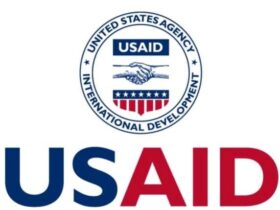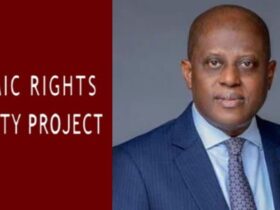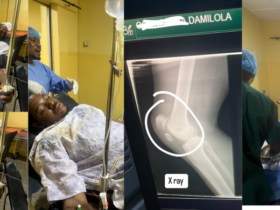The Nigerian government has been urged by the United Nations to eliminate the death penalty.
According to Abubakar Umar, the spokesperson for the Nigerian Correctional Services, there are currently 3,413 inmates on death row in the country’s correctional centres as of December.
During the Universal Periodic Review (UPR) of Nigeria in Geneva, Switzerland, member states of the United Nations pressed for an immediate moratorium on the death penalty, emphasizing the need for its eventual abolition from Nigeria’s criminal justice system.
The UPR, occurring every four to five years, involves a peer review of each UN Member State’s human rights records.
The Nigerian delegation, headed by the Attorney General of the Federation and Minister of Justice, Lateef Fagbemi, is currently participating in the UPR session in Geneva.
Fagbemi presented Nigeria’s report on its human rights efforts, highlighting various laws and policies enacted by the government to address and prevent human rights abuses.
“Nigeria has enacted several legislations, such as the Administration of Criminal Justice Act (2015), the Child Rights Act, and Anti-Torture Act, among others, to safeguard the rights of Nigerians,” the justice minister said, while being flanked by the Solicitor-General of the Federation and Permanent Secretary, Federal Ministry of Justice, Beatrice Jeddy-Agba.

On Tuesday, a journalist from PREMIUM TIMES was present at the UN House in Abuja to observe the Geneva session where Nigeria presented its human rights status to the UN Human Rights Council.
According to the Attorney General, Nigeria’s commitment to enhancing its human rights record has involved reinforcing public institutions to ensure accountability in cases of violations.
Mr. Fagbemi elaborated on the measures taken by the country to “foster and safeguard the enjoyment of fundamental human rights for Nigerians.”
READ ALSO: U.S. Secretary of State, Blinken Promises $45 Million to Enhance Coastal West Africa Security
“Nigeria remains committed to the promotion of the rule of law and obedience to court decisions. Nigeria has designated the National Human Rights Commission (NHRC) as the independent Nationa Preventive Mechanism against torture,” the AGF said.
He mentioned that the Child Rights Act has been implemented nationwide in all 36 states of Nigeria, and the Violence Against Persons Prohibition Act has been adopted in numerous states across the country.
Expanding on the enforcement of various rights, the minister highlighted the establishment of investigative panels in response to the 2020 protests against police brutality in Nigeria. The outcomes of these probes resulted in compensations being paid to victims of violations.
The Nigerian delegation, including individuals such as Wale Fapohunda and Olumide Osoba, presented the country’s report on the implementation of human rights mechanisms recommended by the UN Human Rights Council.
Nigeria’s last review by the council was in 2018, with recommendations aimed at improving the country’s human rights status.
Despite the government’s claims of accomplishments in protecting and promoting Nigerians’ rights, practical challenges persist.
Angela Uzoma-Nwandu, the country director of Avocats Sans Frontieres (ASF) in Nigeria, emphasized that the effectiveness of policies and legislation depends on their implementation. She advocated for the abolition of the death penalty in Nigeria, citing a violation of the right to life.
Concerns were raised about arbitrary arrests, press freedom, torture, shrinking civic space, religious intolerance, and ongoing incidents of Sexual and Gender-Based Violence (SGBV).
The international community, including Amnesty International, called on President Bola Tinubu to prioritize human rights protection and address rights breaches.
In their reviews, West African countries such as Ghana, Togo, and Gabon urged Nigeria to end the death penalty and address gender-based violence.
Other African nations recommended strengthening public institutions to provide quality healthcare and education.
The United States and Canada expressed concerns about Nigeria’s human rights conditions, emphasizing the importance of implementing recommendations from the EndSARS panels, prosecuting law enforcement officers for rights breaches, and decriminalizing same-sex marriage.
Responding to LGBTQ issues, the justice minister asserted that Nigeria’s laws reflect cultural values.
He also mentioned the country’s shift towards commuting the death penalty to life imprisonment in accordance with correctional services laws.
Adwoa Kufuor, senior human rights adviser at the UN in Abuja, outlined key thematic rights issues upon which Nigeria was reviewed.
The ambassador of Belgium to Nigeria, Pieter Leenknegt, observed and noted the recommendations on LGBTQ rights and social protection made by UN Member States during the Geneva proceedings on Nigeria at the UN House in Abuja.








Leave a Reply